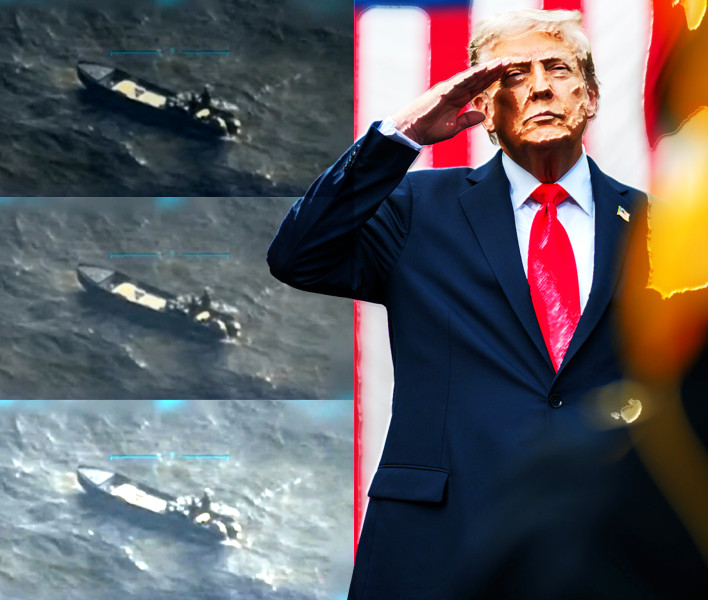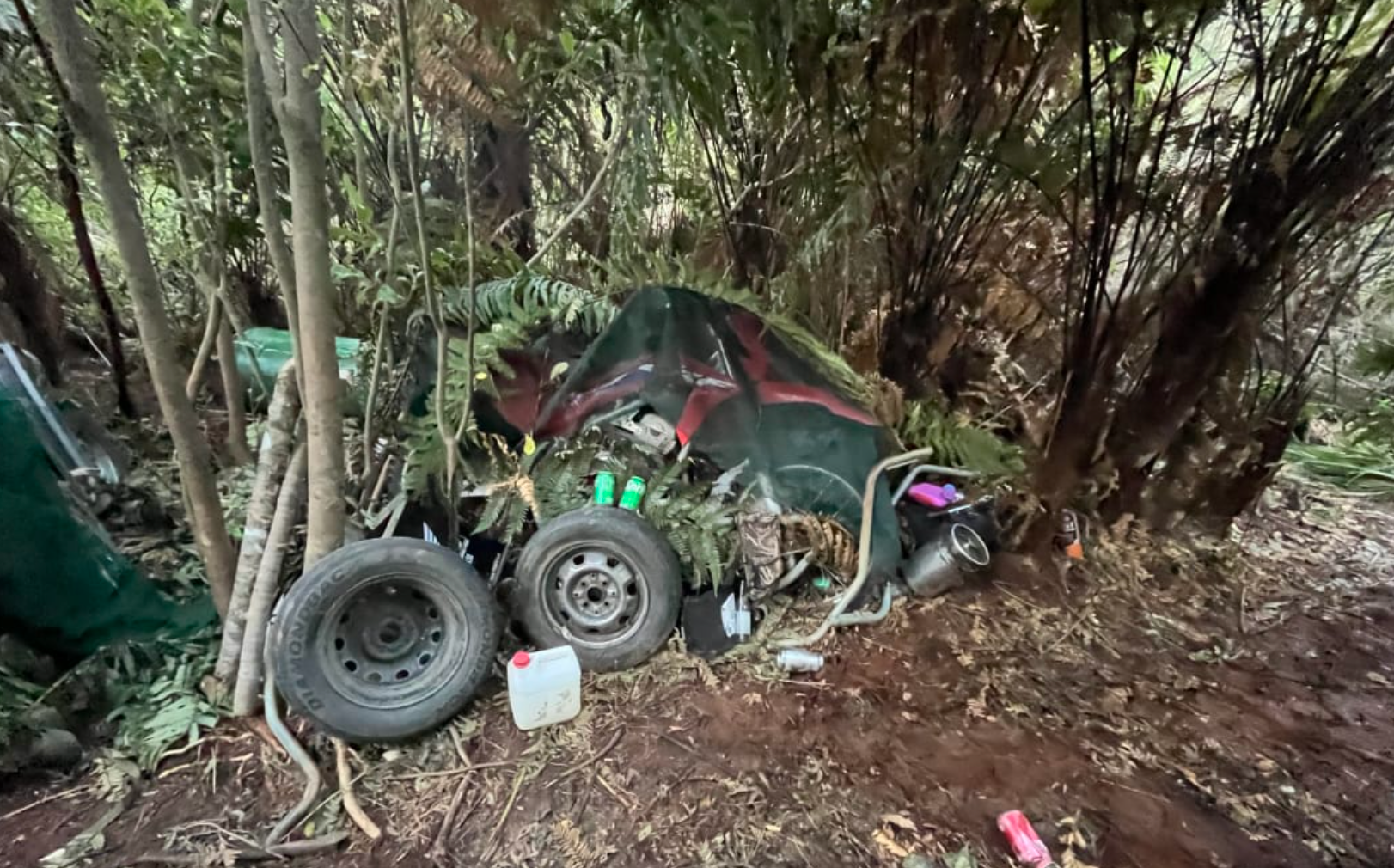By Federico Fuentes,Kerry Smith
Copyright greenleft

As many as nine United States warships remain stationed in or around the Caribbean since their deployment in mid-August. Additionally, five F-35 fighter jets landed in Puerto Rico on September 13, following US President Donald Trump’s order that 10 stealth fighters accompany the military operation being carried on the pretext of combatting drug trafficking.
Adding to the tension, US forces launched separate missile strikes on two small vessels in the past two weeks, claiming they were transporting drugs. US officials have warned more strikes could come, including possibly on foreign soil.
In the second installment of this two-part series, Green Left’s Kerry Smith speaks to Federico Fuentes, a regular GL writer on Venezuela and long-time solidarity activist, about these events and the required response.
The first part of the interview — which covered the background to the US’ military deployment and the ongoing contradictory relationship between the Trump government and Venezuelan President Nicolás Maduro — was published in issue 1437.
Could you bring us up to speed with the main events that have occurred since we last spoke?
Without doubt the most significant events were the US military strikes on two separate small vessels: the first on September 2, which killed 11 people; and a second on September 15, killing three on board. The day after the second strike, Trump claimed a third boat had been “knocked off”, but declined to give any further information.
In fact very little information has been provided about any of the attacks, beyond video footage posted by Trump on social media. No information has been released on which military assets were used in the attack, who or what was allegedly onboard the vessels, or where the attacks occurred (except to say they were in international waters).
The other event of note was US forces illegally raiding a Venezuelan tuna boat, the Carmen Rosa, on September 13. Eighteen US armed personnel held the ship’s crew hostage for about 8 hours before releasing them with no allegations of any actual wrongdoing. Significantly, the raiding of the Carmen Rosa occurred in Venezuelan waters.
So, we have had the US government claiming it destroyed two, maybe three, boats, in clear defiance of international law and even its own protocols, and US forces raiding a boat for no apparent reason, in direct violation of Venezuela’s sovereignty.
How significant are these actions?
These are very dangerous moves that must be condemned and opposed.
The lack of information provided by US officials on their very public executions is deliberate. The clear message the US government wants to send is that it can — and will — summarily execute civilians, wherever it wants, whenever it wants.
US Secretary of State Marco Rubio said so when speaking on September 3 in Mexico about the first military strike, noting that “instead of interdicting [the boat], on the president’s orders, we blew it up. And it will happen again.”
He chose to make it very clear that the option was there to arrest these people, but that they chose to publicly kill 11 people without carrying out any investigation.
Moreover, Trump has made clear that similar strikes on foreign soil are not ruled out, saying on September 15: “When they come by land, we’re going to be stopping them the same way we stopped the boats.”
This way of operation fits neatly into Trump’s world view, in which military might overrides international laws, and where smaller countries must accept that big powers hold complete sway in their self-defined backyard.
But hasn’t the US always operated like this?
An argument along those lines can be made, but there are important differences, both in form and content, that we need to consider.
Take the US’ approach to Venezuela: over the past 25 years it has shown on multiple occasions that it is willing to defy the supposed international-rules based order it purported to defend, in order to try and overthrow the Hugo Chávez and Maduro governments.
But it generally disguised these as multilateral actions, using the Organization of American States, for example, or regional alliances of pro-US governments, such as the Lima Group, which it never officially joined but that clearly carried out the US’s bidding. This time, Trump has demonstrated he is not at all worried about providing any pretense of multilateralism.
Similarly, this is not the first time the US has executed civilians abroad. But previous US governments generally reserved such actions for high-profile targets deemed as direct threats to national security (such as al-Qaeda leader Osama bin Laden), or attempted to hide actions that only came to light due to whistleblowers (as with the Afghan files, which exposed US war crimes in that country).
Here, however, as Mark Weisbrot of the US-based Center for Economic and Policy Research notes, Trump is making no apologies for openly showing “the world that the United States can do this … even when there is no actual war and the people assassinated — who are still unknown — pose no imminent threat to other people’s lives.”
Without in any way diminishing the nefarious actions of previous US governments, these differences make the current situation more dangerous, and place greater responsibility on us to oppose them.
Do these actions tell us anything new about the aims of this operation?
They confirm several things.
First, as I explained in greater detail in the first interview, they indicate it has nothing to do with seriously combatting drug trafficking. This would have required, for example, capturing, arresting and carrying out investigation into those who were executed in the military strikes.
What we have is an operation that is about setting out what Trump believes should be the new rules of the game, backed by projecting US military might in the region.
Secondly, as I warned in the first interview, the stage has been set for targeted strikes or small-scale operations. Given US officials’ statements, we cannot rule out — and perhaps should even expect — further, more dangerous strikes, and not just against Venezuela.
The US’s approach to Mexico has not been the same as towards Venezuela, but it was unlikely just a coincidence that Rubio made his comments during a visit to meet Mexican President Claudia Sheinbaum. Mexico has been mentioned as a possible target for strikes against drug cartels.
At the same time, while not downplaying the grave situation, all indications are that a full-scale invasion of Venezuela remains extremely unlikely. Trump himself has downplayed such a possibility, responding to a direct question on September 5 as to whether “regime change” was the objective of the deployment by saying: “We’re not talking about that”.
Meanwhile, negotiations between Venezuela and the US continue, with a new flight carrying deported immigrants arriving in Venezuela on September 17, and the Venezuelan navy being given the go ahead to escort the Carmen Rosa safely back to shore after it was raided.
Neither of these two things could have occurred without ongoing dialogue, and Trump’s special envoy for Venezuela, Richard Grenell, has restated his belief that diplomacy, rather than war can achieve the US’s aims.
Talking in Paraguay on September 16, Grenell said: “I have gone to see Nicolás Maduro … I have expressed the “America First” position. I understand what he wants. I believe we can still reach an agreement.”
Given all this, what kind of response is needed?
In the face of US unilateral military action, the broadest possible united response is a necessity.
Colombian president Gustavo Petro has been leading the way, seeking to convene an emergency regional summit to discuss the threat (though without much success).
Petro’s role perhaps explains why the US has “decertified” Colombia, claiming it was failing to cooperate in the fight against narco-trafficking. In response, Colombia has said it will halt arms purchases from the US.
The broadest possible united response means seeking to unite all those opposed to US imperialism’s current actions. That inevitably will include supporters of the Maduro government, as well as critics such as Petro.
As recently as September 9, Petro criticised the ongoing detention of former presidential candidate Enrique Márquez and Colombian nationals by the Venezuelan government, noting “Venezuela will not be able to defend itself from injustice if injustice is exercised from power.”
Petro added: “The time of Venezuela’s defense has arrived, which implies the unity of its people. A divided people is easy to invade. Time for dialogue, reconciliation, and unity in Venezuela.”
For that reason, making political support for the Maduro government — which has become increasingly repressive and anti-worker — a requirement for unity can only narrow the possibilities for a united response.
Instead, we need to unite everyone who agrees that the US has no right to intervene in the internal affairs of Venezuela or any other countries in the region. History has shown that such interventions only ever made things worse.



